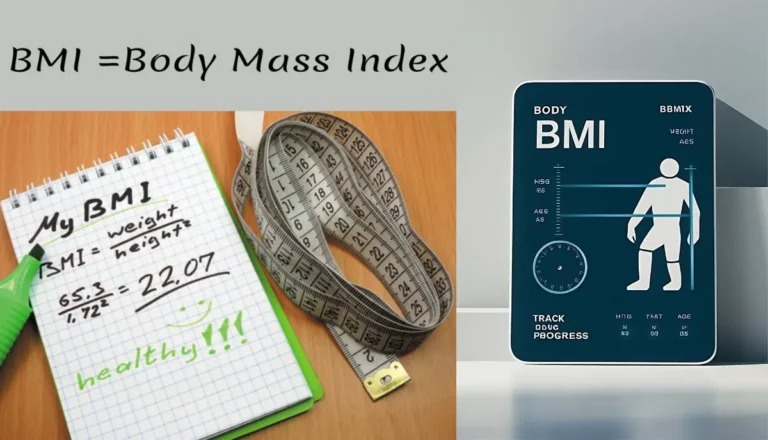Disclaimer: I have affiliate links in this post and I receive a commission on any purchases you make at no cost to you. It’s one of the ways I support my site.
Intermittent fasting is becoming more popular, but a big question is: Is Intermittent fasting safe for everyone? This method can help with weight loss and improve health, but it also has risks. Knowing how to fast safely is key for your health.
It looks promising for managing inflammation and chronic diseases. But, it’s important to think about your own health needs. By looking at the research and talking to experts, you can decide if it’s right for you.
What is Intermittent Fasting?
Intermittent fasting is becoming more popular as people seek ways to get healthier and lose weight. It’s about eating in cycles, not just what you eat. The definition of intermittent fasting means fasting for at least 12 hours a day to work well.
Definition and Overview
Intermittent fasting is a way to better metabolic health and overall well-being. It’s a strategy that helps with weight management. In the past, eating habits were simpler, with smaller portions and more activity. Now, it’s a way to fight obesity and health problems like type 2 diabetes and heart disease.
How Intermittent Fasting Works
When you fast, your body changes in ways that help with fat loss and better insulin use. Studies show fasting can change hormone levels, like insulin and human growth hormone, which helps with weight loss. It takes about two to four weeks for your body to adjust, and you might feel hungrier or have mood changes.
Popular Intermittent Fasting Methods
There are different ways to do intermittent fasting, fitting various lifestyles and tastes:
- Time-restricted eating includes 16 hours of fasting followed by an 8-hour eating window.
- Alternate-day fasting: You alternate between days of normal eating and days of eating less.
- 5:2 approach: You eat normally for five days and eat much less on two days.
Is Intermittent Fasting Safe?

Intermittent fasting has different health effects on people. Your age, health, and lifestyle can change how safe it is for you. If you have health concerns, you should think about how fasting might affect you.
Health Considerations
Before starting intermittent fasting, talk to a doctor about any health concerns. It’s not safe for everyone, especially if you’re pregnant, under 18, or have eating disorders. Those with chronic health issues, like diabetes, may also face risks.
It’s important to talk with your healthcare provider before intermittent fasting. They can give you advice that fits your health needs.
Expert Opinions and Recommendations
Health experts say it’s key to discuss fasting with doctors. Studies show that fasting can help with weight management, but it’s not always better than other diets. The safety of fasting depends on your health and your doctor’s advice.
As more people try fasting, it’s vital to think about its safety. Always talk to a healthcare provider to understand the risks.
Potential Health Benefits of Intermittent Fasting
Intermittent fasting is getting a lot of attention for its health perks. Studies show it can help with weight, blood pressure, and cholesterol. Knowing these benefits can help people decide if it’s right for them.
Weight Loss and Body Composition
The benefits of intermittent fasting include losing weight and improving body shape. A 2022 study with 131 obese participants showed a 9% weight loss after 12 weeks. A 2020 review of 27 studies found weight loss from 0.8% to 13% of starting weight. This shows it’s a good way to manage weight.
Improvement in Blood Pressure and Cholesterol
Intermittent fasting can also help your heart by lowering blood pressure and improving cholesterol levels. A 2020 trial found big drops in blood sugar, which is good for health. So, it’s seen as a lifestyle choice for heart health.
Impact on Inflammation and Chronic Diseases
It also helps reduce inflammation, which is bad for chronic diseases. A 2019 study showed it lowers inflammatory markers. Plus, it can reduce oxidative stress, helping prevent arthritis and neurodegenerative diseases. This is great for people with chronic health issues.
Brain Health and Cognitive Function
Intermittent fasting might also boost cognitive function. Animal studies suggest it helps grow new nerve cells, which is good for the brain. Some research even suggests it could help rodents live longer, similar to calorie restriction. These findings are exciting for brain health and longevity.
| Health Benefit | Evidence |
|---|---|
| Weight Loss | Averaged 9% weight loss in a 12-week study. |
| Blood Pressure | Improvements were noted in various cardiovascular health markers. |
| Cholesterol Levels | Indicated enhancement in cholesterol readings among participants. |
| Chronic Inflammation | Research shows a reduction in inflammatory markers. |
| Cognitive Function | Animal studies suggest enhanced nerve cell growth and brain health. |
Intermittent Fasting Risks and Concerns

Many people try intermittent fasting as a way to eat. It’s important to know the risks and health effects. Knowing the side effects helps people make better choices about their diet.
Common Side Effects
Starting intermittent fasting can cause side effects, especially at first. These include:
- Fatigue: Many feel more tired as their bodies adjust to new eating times.
- Nausea: Some may feel sick to their stomach as their eating habits change.
- Hunger: Feeling hungrier is common and can make people feel emotional.
- Insomnia: Some may have trouble sleeping as their body changes.
- Headaches: Headaches can happen from changes in eating or not drinking enough water.
Long-Term Health Implications
Research on fasting over time is still growing. Some studies show possible cardiovascular risks, especially for those with strict eating times. A study with over 20,000 adults found that those with heart disease or cancer had higher death risks with time-restricted eating. Eating for less than 8 hours didn’t offer health benefits over regular eating. These findings highlight the need for caution with fasting, especially for certain groups.
Cautions for Specific Populations
Some groups should be careful with fasting. These include:
- Children and teens, who need steady nutrition for growth.
- Pregnant or breastfeeding women, who need enough calories for health and baby’s growth.
- People with health issues like heart disease or diabetes might see worse fasting effects.
- For those with an eating disorder history, fasting can make eating issues and emotional problems worse.
It’s key to consider these intermittent fasting risks for a healthy and lasting approach to wellness.
Intermittent Fasting Guidelines and Best Practices
Starting intermittent fasting can bring many health benefits if done right. It’s key to know the best ways to start this lifestyle. People new to it should start with easy methods that fit their health goals.
How to Start Intermittent Fasting Safely
Begin with a plan like the 16:8 method, eating only during an 8-hour window each day. This means fasting for 16 hours. Or, try the 5:2 method, eating normally most days but cutting calories two days a week.
Recommended Time Windows for Fasting
You can pick your fasting times based on what works for you. Popular times for the 16:8 plan include:
| Fasting Schedule | Eating Window |
|---|---|
| 7 a.m. to 3 p.m. | 7 a.m. to 3 p.m. |
| 9 a.m. to 5 p.m. | 9 a.m. to 5 p.m. |
| 12 p.m. to 8 p.m. | 12 p.m. to 8 p.m. |
| 2 p.m. to 10 p.m. | 2 p.m. to 10 p.m. |
Choosing the right time can make intermittent fasting work better for you.
Nutritional Considerations During Eating Periods
It’s important to follow fasting guidelines and eat well during your eating times. Eat foods full of nutrients like fruits, veggies, proteins, and healthy fats. Stay away from processed foods and too much sugar to help fasting work best.
Intermittent Fasting and Physical Exercise

Intermittent fasting can change how you do in workouts. People react differently to fasting, which affects their results. It’s key to know these effects if you’re into exercising on intermittent fasting.
How Fasting Affects Workout Performance
Studies show that fasting before exercise changes muscle chemistry, metabolism, and insulin sensitivity. This helps keep blood sugar stable. Some people find fasting boosts fat burning during workouts, while others might feel tired. It’s important to eat well before and after exercise, especially with the 16:8 method.
This method lets you eat for 8 hours and fast for 16. Planning your meals is crucial.
- Staying hydrated is key when fasting and exercising. Not drinking enough can make you dizzy, give you headaches, or cause muscle cramps.
- Doing low-intensity exercises like walking or gentle Pilates is a good idea during longer fasts to keep your energy up.
- Partial fasts offer more flexibility than complete ones, which are often seen in religious practices.
Combining Fasting with Exercise for Optimal Results
It’s important to listen to your body when fasting and exercising. Focus on the quality of your workouts during fasting. Drinking coconut water or other low-calorie drinks can help with hydration and electrolytes.
Choosing nutrient-rich foods to break your fast is key. These foods should give you energy without overwhelming your stomach. Talking to coaches or trainers is a good idea for young athletes fasting, to make sure they stay healthy and perform well.
| Hydration Strategies | Exercise Recommendations | Potential Challenges |
|---|---|---|
| Stay hydrated to prevent dehydration | Low to moderate exercises are preferable during longer fasts | Energy depletion may occur if not managed properly |
| Coconut water may help replenish electrolytes | Timing meals around workouts enhances performance | May lead to lightheadedness if blood sugar is too low |
| Pay attention to signs of dehydration | Quality of workouts is prioritized over quantity | Fluid loss may increase risks during hot weather |
Comparison with Other Dieting Methods

Intermittent fasting is a popular way to lose weight. It’s often compared to low-calorie diets. Both methods aim to eat fewer calories, but they work differently. Knowing the differences can help you pick the best diet for your life.
Intermittent Fasting vs. Low-Calorie Diets
Studies show that intermittent fasting and low-calorie diets are similar in some ways. Both limit calories to about 1,800 for men and 1,500 for women daily. But, the weight loss results are often the same.
One study found that the weight loss was less than two kilograms over a year. This means that both methods can be effective in controlling weight.
Effectiveness in Weight Management
Both intermittent fasting and low-calorie diets can help manage weight. In a study, people who fasted lost about 18 pounds. Those on calorie restriction lost around 14 pounds. The difference was small and not statistically significant.
Both methods had low dropout rates, about 15%. Blood pressure, cholesterol, and waist size didn’t show big differences either.
This shows that many diets can work well. The best choice often depends on what you prefer and can stick to. Many people like intermittent fasting because it’s easier to follow than counting calories all the time.
Cultural and Societal Perspectives on Intermittent Fasting

Intermittent fasting is a common practice in many cultures around the world. It is often seen as a way to connect with one’s faith and improve self-control. This method is not just for personal health but also reflects how society views fasting. It affects how people follow intermittent fasting.
Each culture has its own way of fasting, like Ramadan in Islam or Lent in Christianity. These traditions show the diversity of fasting practices worldwide.
Intermittent Fasting in Different Cultures
Many cultures have their own versions of intermittent fasting. For example:
- In Buddhist and Hindu traditions, fasting days are for deep thought and cleaning the mind and body.
- The Mediterranean diet often includes fasting periods, focusing on health and wellness.
- In Japan, meal timing is important, but it’s also about seeing health as a whole.
These fasting traditions often bring people together. Sharing meals after a fast strengthens community ties and fasting group dynamics. Cultural support is key to how people see and do fasting.
Social Influences and Group Dynamics
Being with others can make sticking to a fasting plan easier or harder. The support from friends or a community can help keep fasting goals on track. Society’s views on fasting also shape how we see health, body image, and discipline.
This support not only encourages people but also makes them feel responsible for each other.
Scientific Research and Evidence on Intermittent Fasting
Studies on intermittent fasting have found interesting results in many health areas. This research shows the benefits and how it works. It’s a growing area of study.
Recent Studies and Findings
New studies show good results for health issues like obesity, diabetes, and heart problems. These trials have shown big improvements in metabolic health. They focus on ketogenesis, a process where the body uses fat for energy.
This switch in energy sources has helped with health benefits. It improves cell function and might even slow down aging.
- Research shows it can lower total cholesterol, LDL cholesterol, and triglycerides.
- It also makes insulin work better, helping control blood sugar.
- People often lose 3% to 7% of their weight in 8 weeks, with a lot of fat loss.
Intermittent fasting also helps with mental and physical performance. This shows how important evidence-based fasting is for better brain function.
Future Research Directions in Fasting
Even with current studies, we need more research on intermittent fasting. Most studies have been on adults, so we need to look at younger and older people too. This will help us understand how it works for everyone.
- Future studies should look for safe medicines that work like fasting without changing diets a lot.
- Looking at how fasting and genes work together could lead to new health treatments.
- We need more research to understand the long-term effects and the best ways to fast.
This ongoing research on scientific research on intermittent fasting will give us more insights. It will help us improve health and make fasting a better choice for people.

Conclusion
Exploring intermittent fasting shows us its many sides. Studies suggest it helps with weight control and boosts health, like better glucose levels and cholesterol. For example, alternate-day fasting can help obese people lose weight and protect their hearts.
This method has pros and cons. It’s important to think about if it’s safe for you. Some people might find it hard, so knowing your health is key. Always talk to a doctor before starting any fasting plan.
Overall, it looks good for those wanting a healthier life. It’s about weighing the risks and benefits to make the right choice for your health goals. As we learn more, we see how it can work for different lifestyles.
Frequently Asked Questions
Q: What is intermittent fasting?
A: It is an eating pattern that cycles between periods of fasting and eating. It doesn’t specify which foods you should eat, but rather when you should eat them.
Q: What are some popular approaches to intermittent fasting?
A: Some popular intermittent fasting methods are the 16/8 and 5:2. The 16/8 method lets you eat in an eight-hour window each day. The 5:2 diet involves fasting for two non-consecutive days of the week.
Q: Can intermittent fasting help you lose weight?
A: Yes, research suggests that it can lead to weight loss. By reducing the hours you eat and cutting out snacks, you may consume fewer calories, which can help you lose weight.
Q: What are the pros of intermittent fasting?
A: The pros of intermittent fasting include potential weight loss, improved blood sugar levels, and possible benefits to overall health. Some studies suggest it may improve your health. It may reduce inflammation and promote cellular repair.
Q: What are the cons of intermittent fasting?
A: The cons of intermittent fasting are hunger, irritability, and less socializing around meals. It can have unpleasant side effects, especially if not done correctly.
Q: Is intermittent fasting safe for everyone?
A: Many people can safely try it. But, it’s not for everyone. People with certain medical conditions, and pregnant or breastfeeding women, should consult a healthcare provider before starting an intermittent fasting diet. This also applies to those with a history of eating disorders.
Q: How does intermittent fasting compare to other diets?
A: Studies, including ones from the Mayo Clinic, show that it is as effective as a low-calorie diet for weight loss. Whether it’s more effective depends on the individual’s lifestyle and preferences.
Q: What are some common intermittent fasting plans?
A: Common intermittent fasting plans include the 16/8 and 5:2 plans. The 16/8 plan has a 16-hour fast and an eight-hour eating window. The 5:2 plan lets you eat normally for five days, then restrict calories on the other two days.
Q: How does intermittent fasting affect blood sugar levels?
A: Some studies suggest that it may help stabilize blood sugar. This could benefit people with insulin resistance or type 2 diabetes. However, more research is needed to understand this effect fully.
Q: What should I consider before trying intermittent fasting?
A: Before trying it, check your health, schedule, and diet. A healthcare provider can help you find the best approach. They can also ensure that it won’t harm your health.








